Filter by
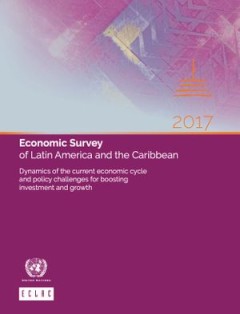
Economic Survey of Latin America and the Caribbean 2017 Dynamics of the curr…
The 2017 edition of the Economic Survey of Latin America and the Caribbean consists of three parts. Part I outlines the region’s economic performance in 2016 and analyses trends in the early months of 2017, as well as the outlook for the rest of the year. It examines the external and domestic factors that have influenced the region’s economic performance and draws attention to some of the m…
- Edition
- -
- ISBN/ISSN
- 9789211219609
- Collation
- -
- Series Title
- -
- Call Number
- 650
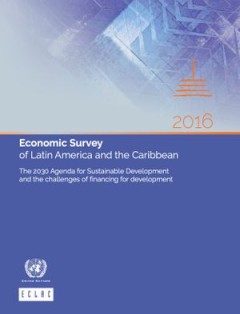
Economic Survey of Latin America and the Caribbean 2016 : The 2030 Agenda for…
This, the sixty-eighth edition of the Economic Survey of Latin America and the Caribbean, which corresponds to the year 2016, consists of three parts. Part I outlines the region’s economic performance in 2015 and analyses trends in the first half of 2016, as well as the outlook for the rest of the year. It examines the external and internal factors influencing the region’s economic performa…
- Edition
- -
- ISBN/ISSN
- 9789211219197
- Collation
- -
- Series Title
- -
- Call Number
- 650
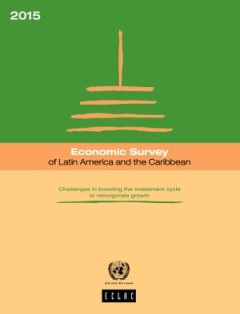
Economic Survey of Latin America and the Caribbean 2015 : Challenges in boost…
The 2015 edition of the Economic Survey of Latin America and the Caribbean consists of three parts. Part I outlines the region’s economic performance in 2014 and analyses trends in the first half of 2015, as well as the outlook for the rest of the year. Part II analyses the dynamics of investment in Latin America and the Caribbean, the relationship between investment and the business cycle, t…
- Edition
- -
- ISBN/ISSN
- 9789211218954
- Collation
- -
- Series Title
- -
- Call Number
- 650
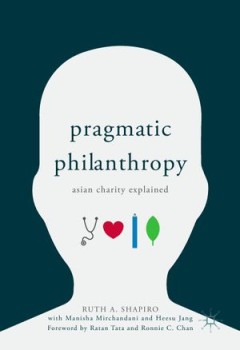
Pragmatic Philanthropy: Asian Charity Explained
Asian Philanthropy and Charitable Organizations; Social Investment in Asia; Social Delivery Organizations; Relationships and Philanthropy in Asia; Ultra-high Net-worth Individuals in Asia; How Social Investment Works in Asia; Impact of Charitable Giving in Asia; Relationship with Elites and Social Investment in Asia
- Edition
- -
- ISBN/ISSN
- 9789811071188
- Collation
- -
- Series Title
- -
- Call Number
- 950 SHA p
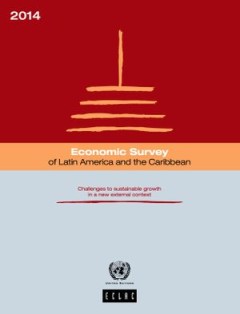
Economic Survey of Latin America and the Caribbean 2014 : Challenges to susta…
The 2014 edition of the Economic Survey of Latin America and the Caribbean consists of three parts. Part I considers the economic performance of the region in the first half-year as well as the outlook for the year as a whole, against the backdrop of a world economy marked by opportunities and setbacks. The causes of the modest economic growth forecast for the year are examined and attention is…
- Edition
- -
- ISBN/ISSN
- 9789211218626
- Collation
- -
- Series Title
- -
- Call Number
- 650
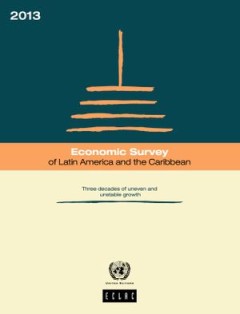
Economic Survey of Latin America and the Caribbean 2013 : Three decades of un…
The sixty-fifth edition of Economic Survey of Latin America and the Caribbean covers the two-year period 2012 2013. As in previous editions, the first part examines the recent performance of the economies of the region and the outlook for the current year. The second part discusses long-term aspects of the economic development of Latin America and the Caribbean. Country notes, which look at the…
- Edition
- -
- ISBN/ISSN
- 9789211218336
- Collation
- -
- Series Title
- -
- Call Number
- 650
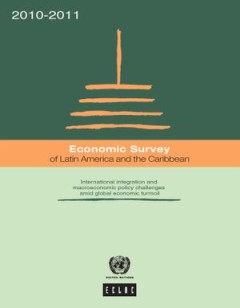
Economic Survey of Latin America and the Caribbean 2010-2011
After contracting in 2009, GDP expanded by 5.9% in Latin America and the Caribbean in 2010, albeit with the region's hallmark differences in performance from one country to another. The expansion in output was driven by strong domestic demand in the forms of both consumption and investment, and by buoyant external demand. On the domestic demand side, private consumption (up 5.9%) was sustained …
- Edition
- -
- ISBN/ISSN
- 9789211217650
- Collation
- -
- Series Title
- -
- Call Number
- 650
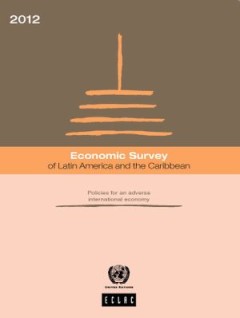
Economic survey of Latin America and the Caribbean 2012 : Policies for an adv…
The sixty-fourth edition of the Economic Survey is divided into four chapters. The first chapter reviews the economic performance of Latin America and the Caribbean during the first half of 2012, against the backdrop of a global economic slowdown and heightened uncertainty as to prospects for growth in the major economies. This scenario contributed to a slight cooling of economic expansion in L…
- Edition
- -
- ISBN/ISSN
- 9789212210711
- Collation
- -
- Series Title
- -
- Call Number
- 650
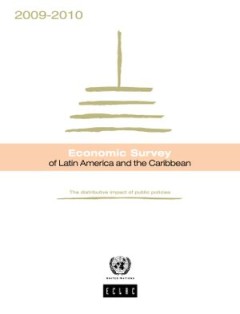
Economic Survey of Latin America and the Caribbean 2009-2010 : The distributi…
In 2009, the economies of Latin America and the Caribbean suffered the onslaught of the global financial crisis and, as a result, the region's GDP shrank by 1.9%. In the second half of the year, however, most of the region's countries were experiencing a robust recovery that has been consolidated in 2010, paving the way for regional GDP to expand by 5.2%. This makes Latin America and the Caribb…
- Edition
- -
- ISBN/ISSN
- 9789211217414
- Collation
- -
- Series Title
- -
- Call Number
- 650
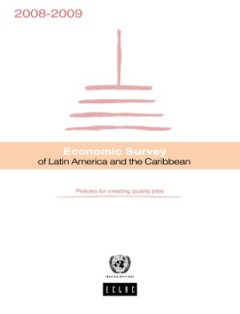
Economic Survey of Latin America and the Caribbean 2008-2009 : Policies for c…
The publication of the sixty-first edition of the Economic Survey of Latin America and the Caribbean, corresponding to 2008-2009, comes at a critical point in the economic development of the Latin American and Caribbean region. A growth phase that the region's recent history cannot equal in nature and duration has come to an end and output is contracting. The toll this state of affairs is takin…
- Edition
- -
- ISBN/ISSN
- 9789211217117
- Collation
- -
- Series Title
- -
- Call Number
- 650
 Computer Science, Information & General Works
Computer Science, Information & General Works  Philosophy & Psychology
Philosophy & Psychology  Religion
Religion  Social Sciences
Social Sciences  Language
Language  Pure Science
Pure Science  Applied Sciences
Applied Sciences  Art & Recreation
Art & Recreation  Literature
Literature  History & Geography
History & Geography